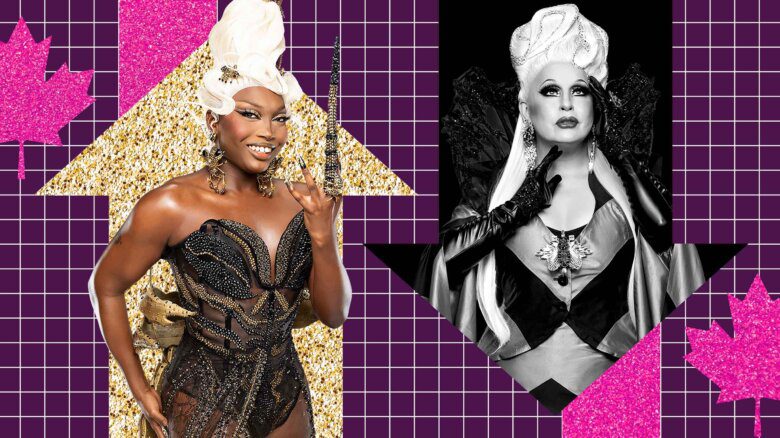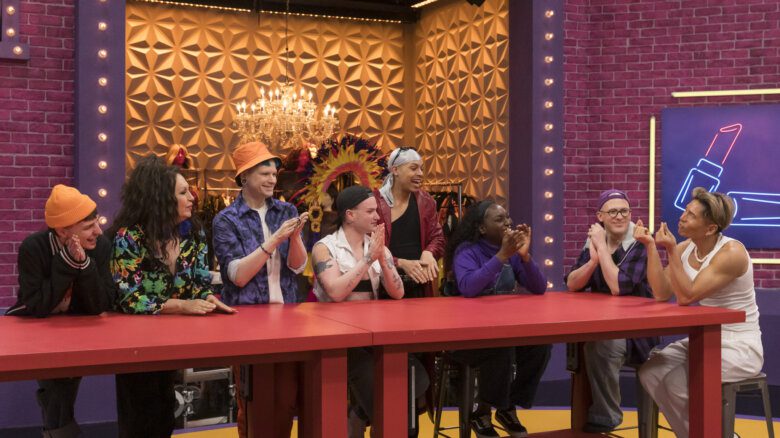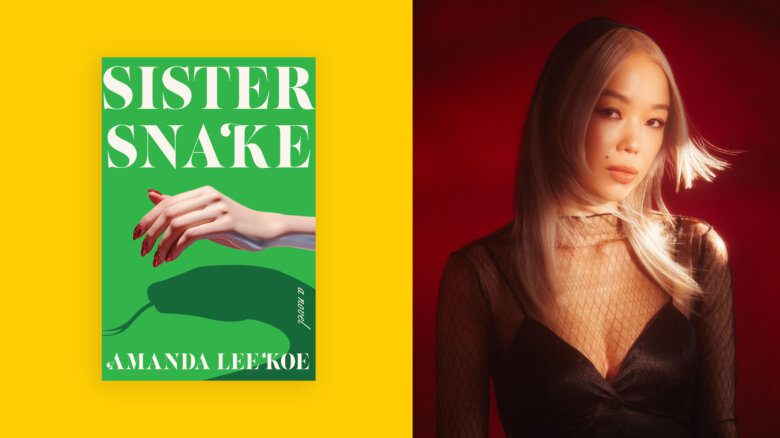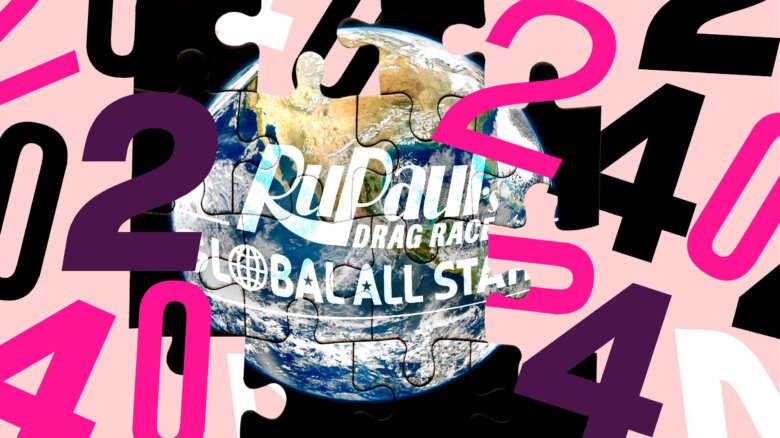“Spread love, it’s the Brooklyn way.” For as long as I can remember, a huge framed poster of Biggie Smalls, the man famous for speaking those words, hung in my father’s barbershop in East New York, Brooklyn. The image hung parallel to a portrait immortalizing Muhammad Ali knocking out Sonny Liston on May 25, 1965, which was next to a life-sized print of Jackie Robinson stealing home plate in Game 1 of the 1955 World Series. Me and my brothers (one older, one younger) spent most of our childhood looking at those legendary men in Black American history while surrounded by men like my father, who spoke about how important visible, strong Black men were to their generation. It was the early aughts, but stepping into my father’s shop felt like travelling back to the 1970s and 1980s. It would be packed, sometimes with up to 50 people, especially when there was a pay-per-view fight or an NBA playoff game. The men discussed and debated all sorts of topics. Money owed on bets miraculously shrunk or ballooned, depending on who you asked. Real drug dealers and scammers scoffed at their portrayals on The Wire. It was a place where the Jay-Z versus Nas beef hadn’t ended. The barbershop was a sports bar, bootleg premiere movie theatre, retail store with negotiable prices, underground hip-hop club, spa, community centre and a refuge from a white society that oppressed Black people. Between the three of us, my brothers and I spent a majority of our youth either in New York or around the barbershop our father owned. We would play sports, lose endless amounts of baseballs and slinkies and try to get each other in trouble as much as possible. We witnessed catcalling, car accidents, kidnappings, domestic incidents and police brutality—all without leaving the front entrance. It was like a portal between the reality we shared and a reality only Black men shared. Around nine or 10 years old, I began to notice how the men in my father’s barbershop behaved when certain people were around. When women, children or strangers came in, their usual uncensored conversations toned down. But my regular presence made me a fly on the wall of their usual “adult talk,” and I was excited to be there. I wanted to be heard and respected in as many conversations as I could without getting stifled by my father or other Black men in the shop—like my brother before me, and my brother after me. As I grew into adolescence, being gay was no longer just an insult my peers threw around in school, but the real identity of people that I knew. In 2007, when the world was reacting to Jodie Foster’s coming out, I asked my mother about it and she said, “Not everyone likes the opposite sex, and that upsets people.” At the time, I considered myself straight; still, I didn’t understand what the big deal was. I learned very soon that not being heterosexual was a big deal—one of life and death—not just around the world or in very conservative parts of America, but in the very city where I grew up. That year, Roberto Duncanson was stabbed to death by 17-year-old Omar Willock in Crown Heights, who claimed that Duncanson had flirted with him; in June 2012, 14-year-old Kardin Ulysse lost the use of an eye when he was attacked by homophobic classmates in Brooklyn. What stuck with me most was the death of Rutgers University student Tyler Clementi, who chose to end his life shortly after his roommate Dharun Ravi and peer Molly Wei spied on his intimate encounters with men and posted about them on Twitter. Although New York City is considered more queer-friendly than other places in the world, that doesn’t mean violent homophobia isn’t thriving.
“I realized that it wasn’t a lack of space that kept Alvin Ailey, Bayard Rustin and Marlon Riggs off those walls; it was a lack of respect.”
By the time I was 14, I had to come to terms with my own sexuality, which wasn’t as determined as I had believed. After years of repression, repentance and denial, I came to accept my bisexuality. I accepted that I wasn’t less of a person—or less of a Black man—for not being heterosexual. The problem was that the community of men I admired was not willing to hear that. I had to navigate my father’s barbershop not just as a neutral party, but as a queer person—unbeknownst to anyone at the time. I still tried to jump into conversations about sports or bad TV shows, like my brother before me. But when the conversation steered into homophobia or transphobia—like when an effeminate man walked by or a famous person came out, like NBA basketball forward Jason Collins in 2013—I stayed quiet. I did not want to jeopardize my safety, not just within the shop but in my hood. And while I wanted to advocate for queer people, I didn’t want to find out how serious some of the patrons were about their constant threats of violence towards us. My dad would openly admit that he did not want the social or cultural advancement of rights for LGBTQ2 people, mostly because he believed they would hinder the progression of Black people’s civil rights. Those two movements are not exclusive; we can advance the rights of LGBT2 people, which includes those who are Black—including me. The fight against the systemic oppression of Black people won’t be finished until Black LGBT2 people like me are included. But back then, those intersections weren’t acknowledged by mainstream society—or my dad. I looked at the men on my father’s wall of legends again: Biggie, Ali and Robinson. I realized that it wasn’t a lack of space that kept Alvin Ailey, Bayard Rustin and Marlon Riggs off those walls; it was a lack of respect.

Movies like the Barbershop franchise capture the comical and communal experience of such a space. Others highlight the importance of the barbershop to Black male identity: in the opening scene of Spike Lee’s 1992 biopic Malcolm X, the titular character, played by Denzel Washington, is held down by other Black men as he gets his hair relaxed, squirming in pain from the heat of the chemicals. The barbershop has remained a space for Black cisgender straight men to seek support, friendship and community from other cisgender straight men—but it is hardly a refuge for queer and trans Black folks. Unlike many spaces where more progressive views are discussed and debated—and where people are held accountable for inappropriate or outright problematic comments, the barbershop has yet to evolve in the same way. In the shop I’ve been privy to frequent disdain for the “new” ways of the world, including society’s acceptance of LGBTQ2 identities. (It’s important to note that our community of Black men isn’t bonded to this type of bigotry—recent research, such as Black Futures Lab’s census, shows that a majority of Black Americans support same-sex marriage and consider violence against LGBTQ2 people to be a serious problem.) For Black men, the performance of masculinity and rejection of homosexuality are deeply entrenched in our culture because of how white supremacy has historically used femininity as a tool of emasculation. Black men have been emasculated through centuries of slavery, apartheid, religion and systemic oppression. Post-slavery, an adherence to Christianity, masculinity and respectability was the only way older generations of African-Americans could receive humane treatment and opportunity in mainstream society, especially throughout the civil rights movement of the 1960s.
“The barbershop has remained a space for Black cisgender straight men to seek support, friendship and community from other cisgender straight men—but it is hardly a refuge for queer and trans Black folks.”
Today’s Black barbershop culture was forged through generations of ostracism and oppression: Public space where Black men needed somewhere to congregate freely and be heard, which—even after the civil rights movement—was hard to find. In barbershops community thrived, but so did toxic masculinity and a hostility towards anyone not deemed “a real man” by their archaic standards. Comedian Jaboukie Young-White, who is Black and queer, has also talked about growing up in the barbershop. In a GQ profile last month, he recalls he internalized the toxic masculinity he witnessed there, “My dad is a barber, and I grew up spending most of my days after school in a barbershop. I remember there being so much casual homophobia,” he said. “That environment is where a lot of my behaviours that are coded as ‘masc’ come from. It was a survival technique. Growing up in so many of these hypermasculine, super-homophobic environments, I think that just naturally became an extension of who I am.” “The barbershop is traditionally a space for men to display masculinity,” says Desiree Marshall, a queer Black barber in Brooklyn. “The barber near my college wouldn’t accept why I—a woman—would cut my hair. I eventually lied and said I was donating it,” she tells me. After college, she moved to Brooklyn and became more open about her sexuality and gender expression. “But barbers were rude and asked invasive ass question. They wanted to know how I had sex, what kind of women I had sex with, if I was ever with a man. All I wanted was a fade.” Tired of fighting to form positive relationships with barbers, Marshall learned how to cut hair herself. Along the way, she’s worked in several barbershops, from Black- and white-owned neighbourhood shops to salons. “I have never seen someone more interested in who is gay and who is not than straight cis Black men in the barbershop,” she says. “The first shop I worked at, the barbers and clients talked more about what rappers they thought were gay than I’ve ever talked about with other gay folks.” “I’ve left shops ‘cause of the way folks have acted with my clients; I’ve witnessed bets placed on ‘What are they really, a man or a woman?’ I’ve had to check folks on preferred gender pronouns of my clients,” she continues. “I’ve had to check dudes on [the] street harassing women that walk by the shop. I’ve educated folks about gender identity and expression.”
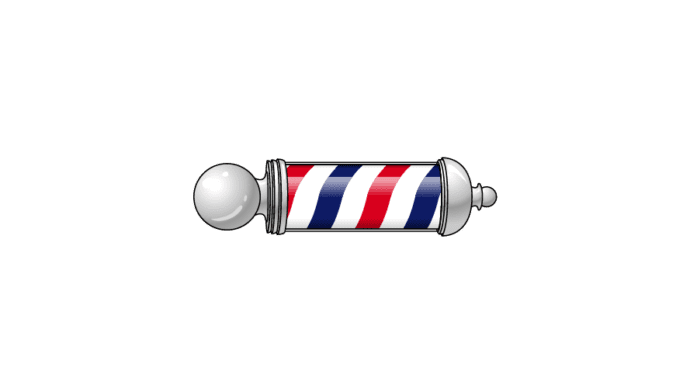
Homophobia in barbershops returned to the spotlight following a recent episode of “The Shop,” a docuseries and talk show set in a barbershop and hosted by LeBron James and Maverick Carter. A clip of the show went viral when Lil Nas X was prompted by marketing executive Paul Rivera to explain his decision to come out this past June. Kevin Hart, who stepped down from hosting the 2019 Academy Awards after past homophobic tweets resurfaced, interjected with: “he said he was gay—so what?” Lil Nas X explained that growing up, he had been taught to hate “homosexuality [and] gay people,” and so by living openly, he would be able to fight LGBTQ2 on a larger scale. Hart then questioned “Why? Why are you growing up to hate it?” To which Lil Nas X responded, “If you’re really from the hood, you know.” Homophobia isn’t limited to the hood, and the lack of understanding exhibited by Hart is evidence of that. He had no issue questioning Lil Nas X’s personal experience because, like many cis Black men in barbershops, Hart is used to his views being accepted, oblivious to the ongoing discrimination and threats of violence to queer and trans people. In a now-deleted tweet from 2011, Hart said he would break a dollhouse over his son’s head if he caught him playing with it, and has continued to ignore or deny how his comments encourage harm against queer people.
“‘The barbershop is traditionally a space for men to display masculinity.’”
Marshall believes the barbershop is an important space for Black folks, and says she has been in shops where she’s felt accepted. “The barbershop is traditionally a space for men to display masculinity. At times beautiful things can happen. I got to witness fatherhood at the shop in ways I never would have. And I felt very blessed to be a part of that,” she says. Marshall’s words speak volumes to me because when I think of all those late nights at “the shop,” I think of the positive, fun times I shared with my brothers, my father, his friends and his clients. While I do recognize the hatred and extreme misconceptions that found a home in that environment, I don’t believe the shop is a place that needs to be eradicated. Barbershops need guidance to grow and flourish into a safe space for customers free of the types of bigotry that promote oppression and phobias. My father has come to terms with my sexuality. We’ve discussed his aversion to queer people’s existences and how he has learned to accept the validity of the sexuality spectrum. I’ve seen more people at the shop challenge and push back against ignorance. Homophobia can’t be negotiated with debate, but we can start by showing love—it’s the Brooklyn way. That’s what I hope I pass to my brother after me, as my brother did before me.
Line break image by XonkArts/DigitalVision Vectors/Getty Images Plus
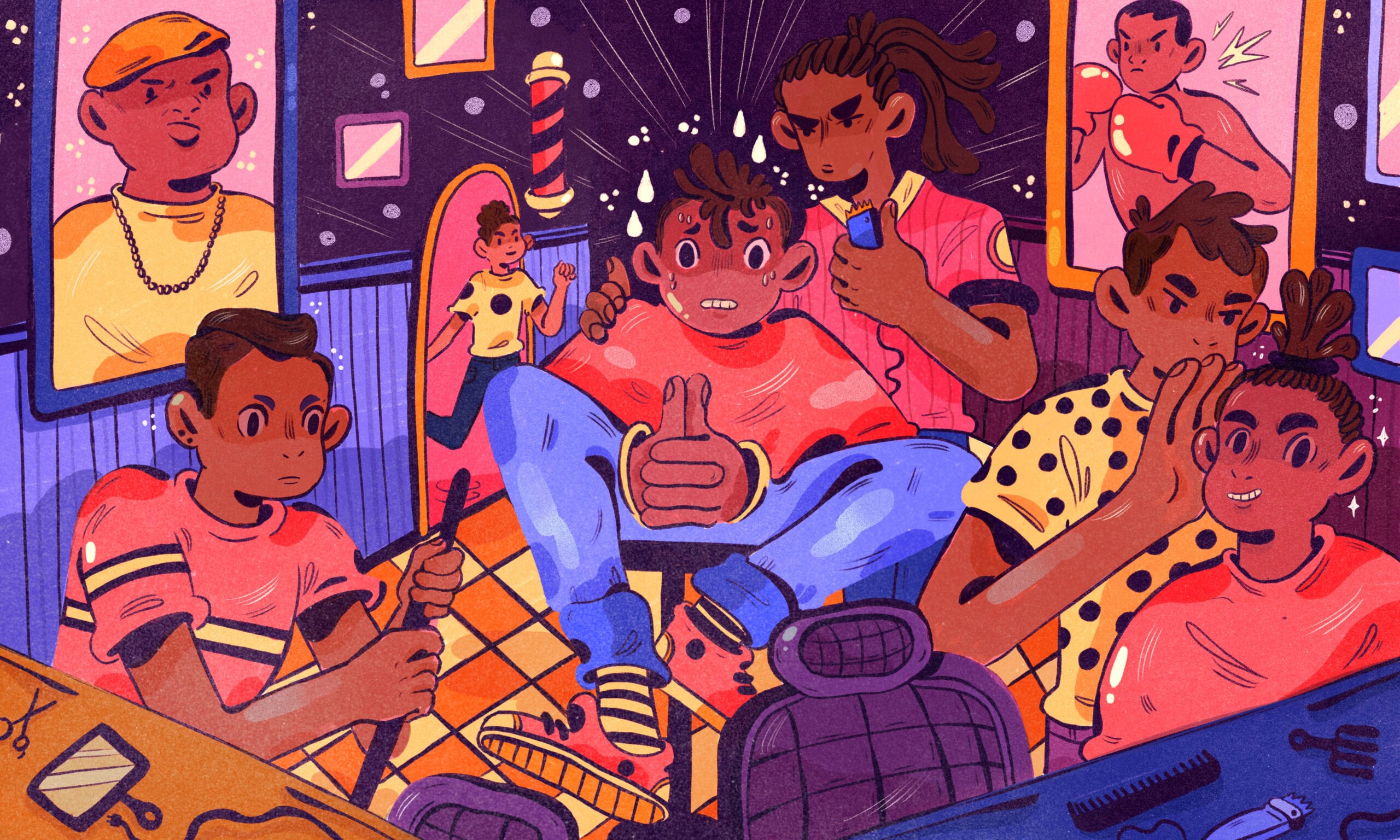
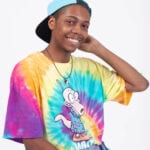
 Why you can trust Xtra
Why you can trust Xtra